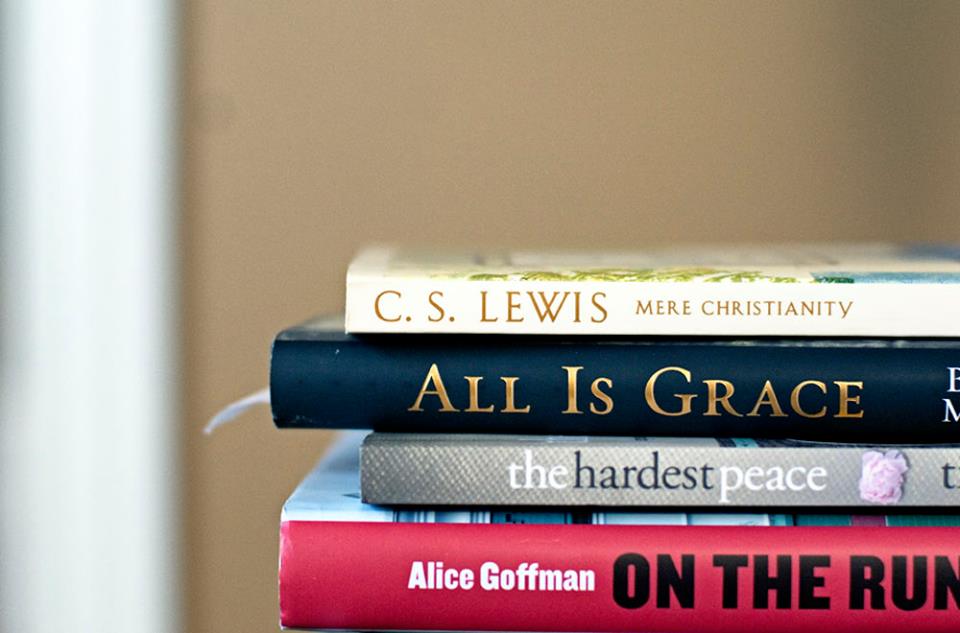The other night my two oldest boys wanted to stay up late. I told them that was fine since it wasn’t a school night, but they had to be reading. They both grabbed books and climbed onto the bed beside me. After a few quiet minutes my oldest said to me, “Mom, what are you reading? You look so sad.” I hadn’t realized my feelings were written on my face, but he was right. I was reading “Just Mercy” by Brian Stevenson and I WAS sad. I told Josh he was very observant because I was reading a book that was full of things that were hard for me to read. They were true things and it made me sad to realize the suffering of other people and how not everybody gets treated fairly. Josh said, “Mom, don’t read things that make you sad.” and went back to his book.
I love my son’s heart– a heart that doesn’t want his mom to be sad. But it’s because I love my kids that I read those books and articles, listen to those podcasts, and watch those documentaries that make me sad. It has taken a long time, but my eyes are being opened to the pain of the world around me– a world I can’t protect my children from. And I don’t want to protect them from it, or protect myself. We have to enter in and stop choosing to see only what makes us feel comfortable with our lives. And not because we should be pain voyeurs, but to challenge ourselves to think differently, to see the other side, to listen to stories we wouldn’t normally hear.
I am pro vaccination. I believe they are the best effort we have at combating illnesses that can cause death or do permanent damage to our most vulnerable populations. I have people in my world who are strongly anti vaccine. This means I am exposed to their thoughts, their research, their fears. It would be easy to tune those things out, but I firmly believe that if my conclusion about vaccines is correct, it can stand up to the toughest scrutiny. I can read those articles and understand why my friends feel the way they do, but it will also help reaffirm to me why I believe what I believe. There doesn’t have to be anything threatening about being educated about someone else’s beliefs.
Then there are the times I have read something that challenged what I believed and I realized I had to change. Several years ago I started reading the stories and perspectives of adult adoptees that were unhappy with the adoption system. This was a new perspective to me and my gut instinct was to run. Surely MY kids would only ever be happy with their adoptions and would become adoption advocates themselves. The more I read of these adult adoptee perspectives, the more I realized it was possible that my kids might love me and be happy with our family, but might see different problems in adoption than what I see from my role in the adoption experience. Sitting with that uncomfortable feeling allowed me to give my kids freedom to experience adoption in whatever way they need to. If they see negatives, I want them to be able to talk to me and to know that I am for them. I also want to be doing my part in supporting and advocating for adult adoptees in areas like access to their original birth certificates. Reading these perspectives changed me, even though it started with me feeling deeply sad and uncomfortable.
I want to model this kind of engagement with difficult content for my children. I am not aiming for them to have a Disneyified childhood. I feel like helping them exist in the world involves many ways that we do difficult things together. There are the simple things, like their responsibilities around the house and to their school, and there are the more complex things, like the sacrifices we’ve made as a foster/adoptive family and the conversations we’ve had to have about issues like drugs, jail, mental illness, pornography and sexual abuse. We don’t want them to be afraid of difficult topics or of becoming familiar with viewpoints that are different from our own. They need to read the things that are sad. I’m afraid there are a lot of parents who want to raise World Changers but are sheltering their kids from the discussions about what exactly needs to be changed.
So let’s read the hard things. Let’s be informed about issues that impact our kids, our community, our neighbors, and our world. Let’s resist the urge to bury our head in the sand when we hear a viewpoint we disagree with. Even when those views are spouted in anger, can we take a minute and ask, “Why is this person so angry?” before we make a judgment about the rightness or wrongness of their argument? Behind that anger we often find a lot of pain that informs this person’s view. That doesn’t make their argument more or less valid, but it should help us understand that when things feel academic to us, they may feel very personal to someone else. If we can have a compassionate response, even in disagreement we may be able to make more progress than if we shutdown when someone else is emotional. Reading the hard things and living the hard things are where growth happens.
*Looking for a recommendation about how to broaden your child’s perspective on the world? We watched “On the Way to School” with our elementary age kids (it’s currently on Netflix). It was eye-opening for them to see the challenges kids their own age face in other parts of the world just to get to school. These kinds of perspective enhancing experiences don’t have to be shocking or innocence shattering in order to have an impact.*


One Comment
Leave a reply →